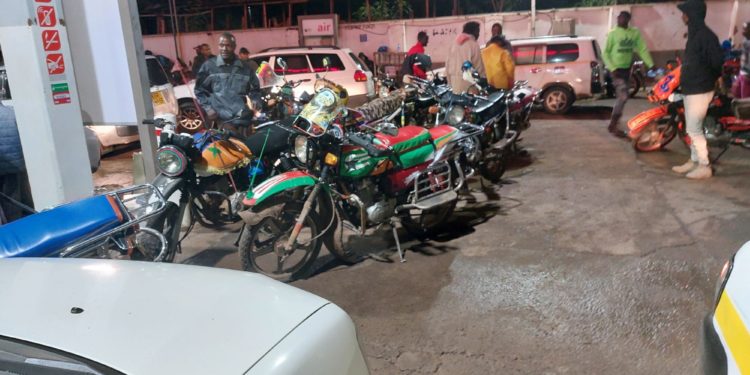The Kenya Pipeline Company (KPC) has responded to the allegations of fuel shortage in the country, pointing a finger to the Oil Marketing Companies (OMCs) for the shortage.
According to KPC managing director Macharia Irungu, there are over 69 million litres of super petrol in its reserves. Additionally, he said there are more than 94 million litres of diesel, 13 million litres of kerosene and over 23 million litres of jet fuel.
“Kenya Pipeline Company would like to confirm that there are ample stocks of petroleum products in our system throughout the country to meet demand,” Irungu said.
“Our global stock holding is adequate to serve the region with more ships in Mombasa queued for discharge.”
Read: CBK Retains Base Lending Rate At 7 PC For The 13th Consecutive Time
The national government has failed in compensating margins to OMCs from the fuel subsidy funds, forcing them to create an artificial shortage.
Although the government alleges that it has only failed to pay oil marketers for one month, reports say that it owes oil marketers for up to four months, going back to December 2021.
The Treasury would require at least Ksh10 billion in March and another Ksh15 billion in April to compensate oil marketers and keep local pump prices unchanged.
Read: Startimes Rolls Out Kids Content Add-on Bouquet
“The subsidy will be very expensive if the government opts to maintain it in the new review. I doubt if the government will manage,” said Martin Chomba, the chair of Petroleum Outlets Association of Kenya (POAK) in March.
The subsidy scheme has been supported by billions of shillings raised from fuel consumers through the petroleum development levy, which was increased to Ksh5.40 a litre in July 2020 from Ksh0.40, a 1,250 percent rise.
The levy cushions consumers from volatility in fuel prices but has also seen motorists lose out when paying the Ksh5.40 for a litre at the pump.
Read: Bolt Hikes Fares Over Increased Fuel Prices


















